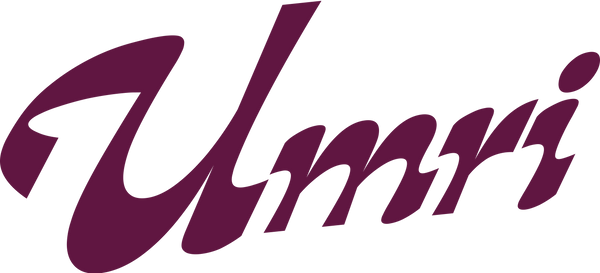
Overcoming Ageism and Hormonal Changes at Work: A Journey of Resilience
Share
Introduction: Balancing Career, Confidence, and Change
Picture this—you’ve worked tirelessly to build your career, only to face the dual challenge of ageism and hormonal changes. How do you keep excelling professionally while managing the physical and emotional shifts that come with perimenopause and menopause?
For many women, this stage arrives just as they’re reaching their career peak. It’s an intersection of professional responsibility, societal expectations, and personal transformation. The reality? Navigating menopause at work can feel overwhelming—but it’s also an opportunity to grow stronger, wiser, and more empowered.
Understanding Ageism and Hormonal Challenges in the Workplace
Let’s face it — ageism in the workplace is real. It can range from subtle remarks about being “old school” to outright discrimination in promotions or hiring. When combined with menopause symptoms like hot flushes, cognitive fog, and fatigue, it can seriously affect confidence and performance.
Imagine this: a brilliant, experienced woman delivering results year after year, but suddenly struggling with brain fog during menopause or battling night sweats before work. Her expertise hasn’t changed — only her hormones have. Yet the workplace often misinterprets these natural changes as signs of decline.
💡 Learn more about how menopause impacts women’s careers in this insightful Forbes feature on women and workplace resilience.
The Emotional Reality of Ageism and Menopause
Hormonal fluctuations can make even small workplace interactions feel heavier. When coupled with age-related bias, women often internalize self-doubt or experience imposter syndrome.
Comments like “senior moment” or “not keeping up” can subtly undermine confidence, even for seasoned professionals. But here’s the truth — experience never expires.
What needs to change is the narrative around age, wisdom, and hormonal health in professional environments.
Empowering Strategies for Confidence and Balance
Here are some practical ways to manage menopause symptoms at work while staying strong, focused, and self-assured:
Prioritize Wellness and Rest
Your body is adapting — honor that.
- Keep your desk stocked with water and light snacks to manage hot flashes.
- Practice deep breathing before important meetings.
- Try caffeine-free drinks like UMRI’s botanical blends, which promote calm and focus naturally.
You can explore more natural mood-support options at myumri.com.
Build a Supportive Work Environment
Join menopause support groups within your organization or online. Talking about your experience helps normalize the conversation and fosters understanding among colleagues.
Advocate for Menopause Awareness at Work
Encourage HR to implement menopause-friendly workplace policies — like flexible hours, remote work options, and private rest spaces. The Equality and Human Rights Commission (EHRC) has recently recommended incorporating menopause awareness into corporate wellness policies, a step toward greater inclusion.
Communicate Boundaries with Confidence
It’s okay to set limits. Openly discuss workload expectations with your manager. Communication creates respect and prevents burnout.
Corporate Responsibility: Creating Inclusive Workplaces
Companies have the power to change the narrative. A truly inclusive workplace recognizes that supporting women through menopause isn’t just about health — it’s about equality.
Forward-thinking organizations are already implementing:
- Workplace menopause education programs
- Flexible work arrangements
- Dedicated wellness resources for managing symptoms discreetly
-
Inclusive age diversity policies that celebrate experience
For example, the UK Government’s Menopause Workplace Pledge encourages employers to support women during this transition actively — an initiative every company can learn from.
The UMRI Way: Supporting Balance and Focus Naturally
Hormonal changes can be unpredictable, but your support system doesn’t have to be. UMRI wellness drinks are crafted to help women feel balanced, focused, and refreshed — naturally.
Formulated with botanicals like jasmine, pineapple, and passionfruit, UMRI offers:
- Caffeine-free hydration to ease anxiety and fatigue
- Natural mood enhancement for clarity and calm
- A refreshing alternative to alcohol during social or work gatherings
Discover your perfect workday companion — explore the collection at myumri.com.
FAQs About Menopause and Ageism at Work
Q1. What does ageism look like in professional settings?
It can appear as subtle bias — being overlooked for promotions, excluded from innovation projects, or assumptions that you’re “past your prime.”
Q2. How can I manage menopause symptoms while working?
Stay hydrated, dress in breathable fabrics, manage stress with mindfulness, and avoid caffeine or alcohol that trigger hot flashes.
Q3. What can employers do to support women during menopause?
Implement flexible schedules, educate staff, and provide safe spaces for open discussions about menopause and age diversity.
Q4. How can I boost confidence during hormonal changes?
Focus on strengths, maintain routines, practice mindfulness, and surround yourself with supportive peers or mentors.
Conclusion: Redefining Strength in the Workplace
Women have always been at the heart of innovation and leadership — and menopause doesn’t change that. In fact, it deepens resilience and empathy, qualities that every workplace needs.
By overcoming ageism and embracing natural hormonal transitions, we’re not just breaking stigmas — we’re rewriting what leadership and longevity look like.
So here’s to you — the experienced, evolving, unstoppable professional.
Support your balance and brilliance with UMRI Wellness Drinks, crafted for modern women navigating change with grace.
Discover more at myumri.com.
